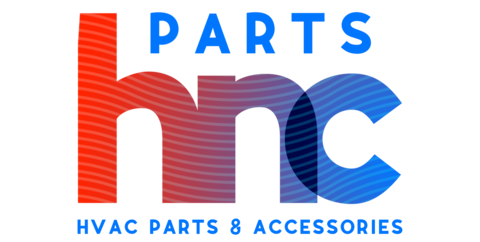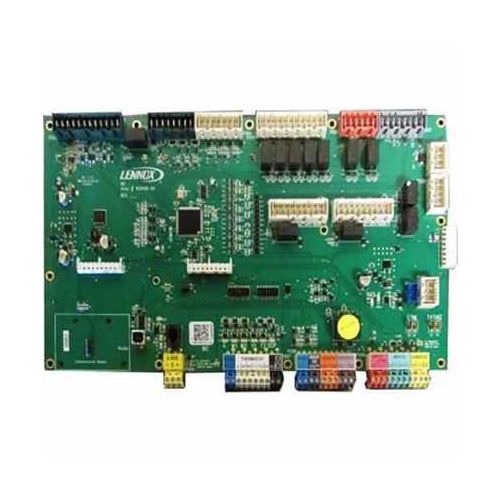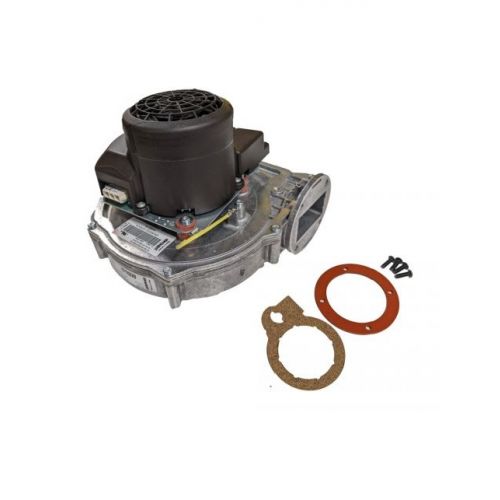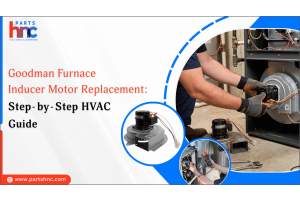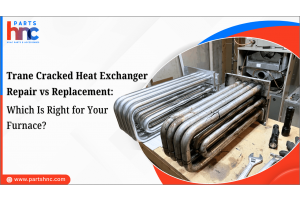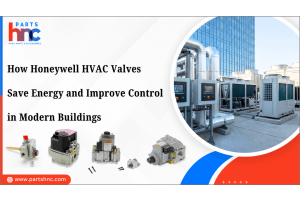HVAC Maintenance Tips for Homeowners: Here's What You Need to Know
Do you ever wonder how to ensure your home remains a haven of comfort, no matter the weather outside? The answer lies in your HVAC system – the silent hero that regulates indoor temperature and keeps you cozy year-round. But here's the catch: like any mechanical marvel, your HVAC system demands a little TLC to perform at its peak. That's where residential HVAC maintenance sweeps in. Picture reduced energy bills, prolonged system lifespan, and an uninterrupted oasis of indoor comfort.
In this article, we'll unveil 11 HVAC tips and tricks every homeowner should grasp. From filter replacements to professional HVAC servicing, we've got your back on the path to a seamlessly efficient and cost-effective home climate control system.
What is HVAC maintenance?
Air conditioner maintenance refers to the routine upkeep of Heating, Ventilation, and Air Conditioning systems. It involves inspecting, cleaning, and servicing various components such as filters, coils, motors, and ducts. Proper maintenance ensures efficient system operation, improves indoor air quality, and extends the lifespan of HVAC equipment. Regular checks and adjustments help prevent breakdowns, reduce energy consumption, and maintain optimal comfort levels.
How to do HVAC maintenance?
We know that proper commercial or residential HVAC maintenance is essential to ensure the efficient and effective operation of your heating, ventilation, and air conditioning systems. Regular maintenance not only extends the lifespan of your equipment but also enhances its energy efficiency, leading to lower utility bills. Neglecting air conditioner maintenance can result in poor indoor air quality, reduced comfort levels, and even costly breakdowns. But how to do HVAC maintenance? Here are 11 HVAC tips and tricks for homeowners that will help them maintain their heating systems.
Why HVAC Maintenance is Important?
Before diving into the specifics of HVAC maintenance, it’s crucial to understand why regular upkeep is necessary. Here’s a breakdown of the benefits:
-
Energy Efficiency: Regular maintenance ensures that your system operates efficiently, which reduces energy consumption and lowers utility bills.
-
Prolongs Lifespan: Proper care and timely repairs can extend the lifespan of your HVAC system by preventing unnecessary wear and tear.
-
Improves Air Quality: Maintaining the HVAC system ensures that filters and ducts are clean, which can reduce allergens, dust, and bacteria circulating through the home.
-
Prevent Breakdowns: Routine checks help identify potential problems early, preventing unexpected and costly breakdowns.
-
Ensures Comfort: An efficiently running HVAC system maintains a stable indoor temperature, regardless of outside conditions.
HVAC Tips and Tricks for Homeowners
Keeping your HVAC system running efficiently not only ensures comfort throughout the year but also helps save on energy costs. Here are 11 helpful tips for maintaining HVAC unit for homeowners to get the most out of their heating, ventilation, and air conditioning systems:
Change Air Filters Regularly
Filters eliminate dust, hair, and other particles from the air, preventing the dispersion of these contaminants throughout your house. Enhance indoor air quality and conserve energy by replacing the HVAC filter on a monthly basis. It is the best HVAC preventative maintenance that a homeowner must do because unclogged filters facilitate better airflow, leading to increased efficiency in heating and cooling processes. In the case of most systems, filters with a MERV rating ranging from seven to 13 strike an optimal equilibrium between filtration capability and maximal airflow.
Keep Outdoor Unit Clean
The external HVAC unit has the potential to gather fallen leaves, twigs, grass clippings, and miscellaneous debris. It's important to clear away any debris from the unit and its surroundings whenever you engage in yard upkeep. If dirt starts to build up, consider using a hose to wash it off. Additionally, ensure that plants in close proximity are trimmed to a distance of at least two feet from all directions of the unit. This step will aid in preserving adequate airflow.
Clean and Maintain Evaporator Coils
Evaporator coils are vital components in the cooling process of HVAC systems. These coils remove heat from indoor air, allowing for cool air circulation. Over time, dirt and debris can accumulate on the coils, hindering their efficiency and reducing cooling capacity. Regularly cleaning the coils is essential to maintain optimal performance. To do so, turn off the system, gently brush off debris, and use a mild detergent to clean the surface. This simple air conditioner maintenance step ensures efficient cooling and extends the lifespan of your HVAC unit.
Know about the Steps for cleaning air conditioner coils.
Check and Clean Condensate Drain Line
The condensate drain line plays a crucial role in HVAC systems by carrying away the water produced during the cooling process. Its primary purpose is to prevent excess moisture buildup and potential water damage. Regularly checking and cleaning the condensate drain line is vital to avoid clogs that can lead to blockages and leaks. To maintain its functionality, simply locate the drain line, inspect for any obstructions, and clear them using a mixture of water and vinegar or a specialized cleaning solution. This quick maintenance step ensures your system operates smoothly and prevents costly issues.
Schedule Professional HVAC Inspections
Consider arranging biannual HVAC tune-ups, ideally one during spring for air conditioning and another in fall for heating. Skilled technicians will meticulously perform HVAC servicing, inspect, and troubleshoot your system to enhance efficiency and prevent breakdowns. The technician will:
-
Verify thermostat calibration and settings
-
Tighten electrical connections as required
-
Lubricate all moving components
-
Examine and cleanse the condensate drain
-
Inspect system controls
-
Adjust and clean blower elements
-
Clean evaporator and condenser coils
-
Verify refrigerant charge
-
Check fuel line connections
-
Inspect gas pressure, burner combustion, and heat exchanger.
Lubricate Moving Parts
Lubricating moving parts within HVAC systems is crucial for their optimal performance. These parts, including motors, bearings, and fans, require proper lubrication to reduce friction and prevent wear and tear, ultimately extending their operational life. Regular lubrication minimizes energy consumption, enhances efficiency, and reduces the risk of costly breakdowns. To safely lubricate, first, turn off the system, identify lubrication points, and use manufacturer-recommended lubricants. Adequate lubrication ensures smoother operation and contributes to the overall longevity of your HVAC components.
Test Thermostat and Calibrate if Necessary
Ensuring an accurately calibrated thermostat is crucial for both comfort and energy efficiency. Incorrect settings can lead to temperature discrepancies and unnecessary energy consumption. To test accuracy, place a thermometer beside the thermostat and compare readings. If variations are found, calibration might be necessary. Consult your thermostat's manual for specific instructions on adjustment. Calibrating involves accessing the thermostat's settings and making minor alterations to align it with the accurate temperature. This simple step ensures optimal indoor conditions and cost-effective heating/cooling.
Seal Ductwork and Insulate
Sealing ductwork offers significant energy efficiency advantages. Duct leaks lead to air loss, causing HVAC systems to work harder and consume more energy. This not only escalates utility bills but also affects overall comfort. To locate leaks, perform a visual inspection or use a smoke test. Sealing with foil tape or mastic prevents conditioned air from escaping. Additionally, proper insulation minimizes heat transfer in ducts, further optimizing system performance and reducing energy wastage.
Know more about HVAC Duct, Different Types And Installation Of Duct.
Monitor Refrigerant Levels
Monitoring refrigerant levels is crucial for optimal cooling efficiency in HVAC systems. Proper refrigerant levels ensure effective heat exchange, maintaining desired indoor temperatures. Low refrigerant levels can lead to reduced cooling capacity, longer running times, and even compressor damage. Recognizing signs of low refrigerant, such as insufficient cooling or ice formation, can help detect potential leaks. Refrigerant adjustments demand specialized knowledge and equipment, so it's best to entrust these tasks to qualified HVAC professionals to ensure system performance and safety.
Keep Vents and Registers Clear
Maintaining unobstructed vents and registers is crucial for achieving consistent airflow throughout your space. Furniture and other objects can inadvertently block the airflow, leading to inefficient heating and cooling. To ensure optimal airflow, arrange furniture in a way that allows free movement of air from vents. This not only maximizes the performance of your HVAC system but also helps maintain a comfortable and balanced indoor temperature.
Maintain Adequate Clearance Around Indoor Units
Ensuring sufficient clearance around indoor HVAC units is crucial for optimal performance. Adequate space allows for proper air circulation, preventing air flow blockages that can hinder efficiency. To maintain clearance, avoid placing furniture, curtains, or other obstacles too close to the unit. Restricted airflow can lead to reduced cooling or heating output, increased energy consumption, and even system overheating. By keeping a clear area around indoor units, you enhance their efficiency and extend their lifespan while maintaining a comfortable indoor environment.
Consider a new HVAC system
After implementing these 11 essential HVAC maintenance tips, homeowners might still encounter issues with an aging system. In such cases, it's worth considering investing in a new HVAC system. Despite maintenance efforts, older units can become less efficient and prone to breakdowns. Upgrading to a modern system can offer improved energy efficiency, better indoor air quality, and advanced features for enhanced comfort. While the initial cost might seem daunting, the long-term benefits in terms of reduced energy bills and fewer repairs make it a wise investment. Consult with HVAC professionals to determine the right system size and type for your home's specific needs.
These 11 essential HVAC system maintenance tips provide a comprehensive guide for homeowners to ensure optimal system performance. Embracing these practices not only guarantees a well-functioning and efficient HVAC unit but also fosters long-term comfort and substantial cost savings. Prioritizing maintenance translates into a more enjoyable living environment while safeguarding your financial resources. Remember, a well-cared-for HVAC system serves as the cornerstone of a comfortable and economical home.
 Loyalty Program
Loyalty Program